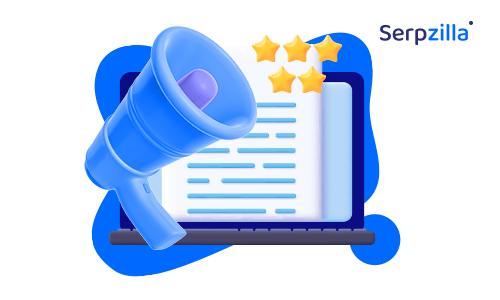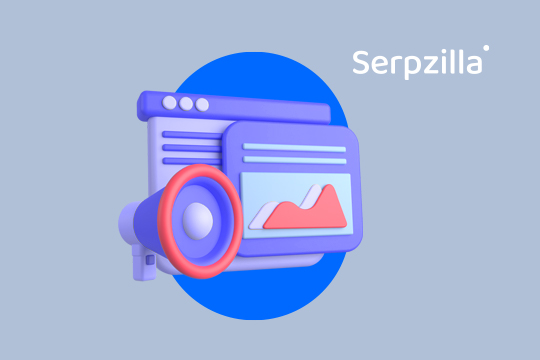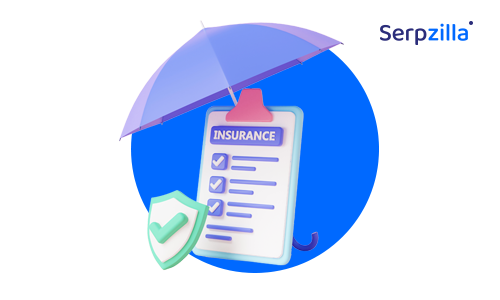Domain authority is one of the most cited metrics among SEO marketers when it comes to measuring a website’s SERP performance. It affects so many SEO aspects that its importance simply can’t and shouldn’t be underestimated. Yet, the metric itself isn’t something set in stone and the idea behind it as well as the calculation algorithm is rather complicated. In this article, we get to the bottom of what is Domain Authority (DA), how it is calculated, what factors affect it and how to increase your DA.
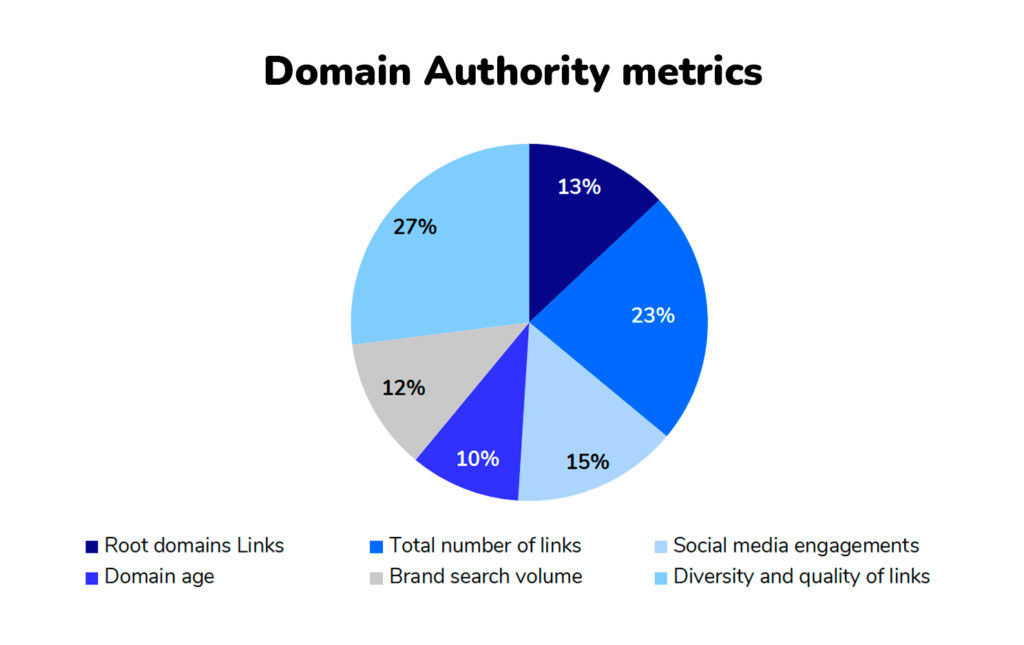
What Is Domain Authority and Why Is It Important?
Originally, DA is a metric or, to be more precise, a search engine ranking score developed by Moz. It is measured on a scale from 1 to 100, with 1 being the lowest DA and 100 being the absolute highest DA. What the metric does is predicting how well your site can rank in SERP. The higher DA you have, the higher place in SERP you are likely to get. The complicated part is that your DA score is usually calculated using various factors, such as linking root domains and the number of total links.
The importance of the DA score lies in the fact that it can give you a very clear overall picture of how well your site is optimized for search engines, the performance of various SEO techniques you are using and the overall quality of your backlink profile. The better DA you have, the more visibility you gain through search engine searches. This, in turn, increases your organic traffic and credibility. That is why SEO marketers focus on improving the DA score for their websites.
Tools to Check Domain Authority
There are many tools that can help you check your DA, independently or linked to other SEO metrics. Their evaluations may slightly differ, as they use different algorithms, but if you use several tools and get their measurements, you can get a comprehensive picture of what your DA is and where you stand.

- Moz Link Explorer: As the originator of the metric, Moz’s own tool provides detailed link metrics, including DA, linking root domains, and inbound links.
- Ahrefs: Offers a Domain Rating (DR) metric which is quite similar to DA, along with comprehensive backlink analysis.
- SEMrush: Provides an Authority Score, which evaluates the quality and SEO performance of a domain.
- Majestic: Uses Trust Flow and Citation Flow metrics to evaluate a site’s link profile.
- Alexa: Provides a comprehensive site analysis, including traffic, engagement, and backlink metrics.
Steps to Improve your Domain Authority
Improving your DA score shouldn’t be viewed as a singular measure. Usually, it’s a whole array or SEO activities, doing which on a regular basis will improve your DA, other metrics and overall performance. Here are a few best practices that you can adopt which help you to improve your DA.
- Create High-Quality Content
Today’s SEO largely hangs on quality content. If you offer engaging, unique, highly usable ans sought after content, it boosts all other SEO efforts immensely. Vice versa, if your content is poor quality, if you abuse click-bait, if you create redundant content and mislead your users, no amount of excellent SEO tactics will significantly improve your DA and performance. High-quality content attracts more visitors, encourages longer dwell times, and is more likely to be shared and linked to by other sites. So, high-quality content should be the foundation of your SEO. Make sure it’s relevant to your audience, include long-reads, enrich it with varying media such as photos, infographics and videos, engage with your audience. This will help establish your site as an authority in your niche and improve your chances of earning valuable backlinks.
- Perform Audits for your Backlink Profile
Backlink profile is a very fluid and changeable thing. It can go from excellent to toxic in a matter of days. That is why you have to constantly monitor it and analyze it for possibly harmful backlinks and opportunities to improve it. Use tools like Ahrefs, Moz, or SEMrush to analyze your backlink profile, identify toxic links, and disavow them if necessary.
- Work on Off-Page SEO of Your Website
Off-page means that your SEO actions concentrate outside of your own website. Off-page SEO ultimately determines who links back to you, how many mentions and citations you have and how much link juice these backlinks pass to you. All of these directly affect your DA score. Here is what you can do:
- Guest blogging: Write valuable content for other reputable sites in your niche and in exchange you get visibility boost and a backlink.
- Social media marketing: Promote your content on social media platforms. This is a great way to engage with your audience and drive highly coveted organic traffic
- Influencer outreach: Seek out influencers in your niche to do collabs. This opens you to gain exposure with new audiences and, of course, valuable backlinks.
- Enlist Serpzilla’s Help with your Off-Page SEO
We at Serpzilla offer quite a range of features for off-page SEO, which will ultimately help you increase your DA and get a solid backlink profile. With Serpzilla, you can:
- Tap into a huge database of high-quality websites for guest blogging
- Automate and manage your link-building campaigns
- Monitor your backlink profile and analyze your competitors’ backlink strategies and replicate their success
- Conduct fully automated yet highly personalized outreach campaigns
- Improve your On-Page SEO
On-page SEO is just as important as Off-page. If you only focus on off-page, it won’t bring you the desired result, as few websites want to link to a resource that is low quality or offers a poor user experience to its visitors. At the same time, there are quite a few things you can do on your website to have search engines crawl your content with better result and give it higher rankings because of its relevance and uniqueness to particular search queries. Here are a few things you need to do to make sure your website doesn’t scare users away with poor performance and is easily picked up by search engines.
Keyword Optimization: Use relevant keywords but don’t overstaff them or make their use too evident.
The Freshness of the Content: Regularly update your content and offer something new to your visitors.
URL Optimization: Create clean, descriptive URLs that include target keywords.
Meta Title: Write compelling, keyword-rich titles for each page to have search engines pick them up.
Meta Description: Craft informative and concise meta descriptions to stimulate your audiences to click on the link to your website.
Heading Tags: Use heading tags (H1, H2, etc.) to structure your content and highlight key points. Structured text offers better UX and is viewed positively by search engines.
Image Alt Text: Always use it to improve your accessibility score. You can also optimize image alt text with relevant keywords for better image search rankings.
Internal Links: Link to other relevant pages on your site to improve navigation and user experience.
Fix Technical SEO Issues: Fix and further avoid issues like broken links, duplicate content, and crawl errors.
Page Load Speed: Make sure you have optimized all of your content for speedy loading. This means, no irrelevantly huge media and unnecessary styling.
- Pay Attention to Social Signals
Today’s SEO absolutely has to be multichannel. This means, you can’t just launch a website and expect great performance. You need to communicate with your audience on multiple channels consistently and use all possible touch points. Thus, maintaining active social media presence is a must. You should be noticeably active in at least several major social networks. Social signals, such as likes, reblogs, reposts, quotes, replies, are great for SEO, even though they aren’t counted by search engines in rankings directly. But they help to drive organic traffic, increase your visibility, and establish you as an expert in your niche. All of this adds up to your DA score.

Boost your SEO results! Link building has become fast and easy with Serpzilla. Buy quality backlinks on authority websites with high DR.
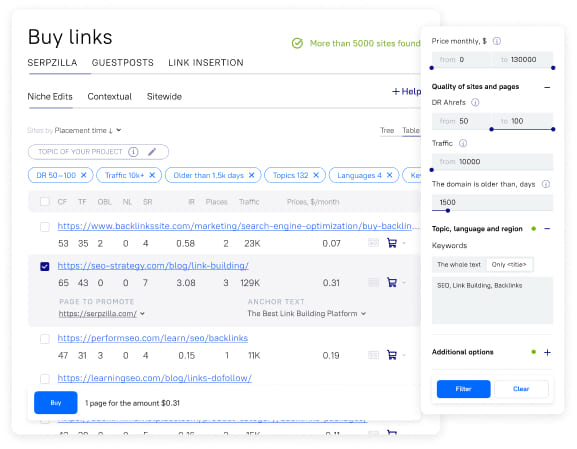
Conclusion
Working on improving your Domain Authority score should be viewed as an integral part of your SEO strategy, quite interdependent with other SEO activities. Higher DA score not just means you’ve done well improving it, but also that your other SEO activities are doing great, that your content is appreciated by your audience, that you are recognized as an expert and a reputable source in your niche. Using the best practices described above, you can improve your DA score, and also boost your SEO performance in a number of other SEO areas.



